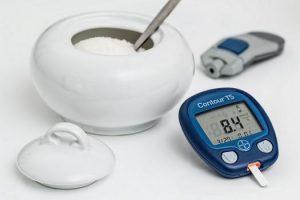Fasting For Greater Health
So first, let’s just talk about what fasting is. It isn’t about what you eat, but when you eat it (although you’ll get better health results if you eat a healthy diet when not fasting!). So all of you who are focused on achieving weight management and better health simply by cutting calories…you need to throw that concept out the window!
 Fasting is when we restrict ourselves from the intake of food, not through intentional calorie restriction, but through meal timing restrictions.
Fasting is when we restrict ourselves from the intake of food, not through intentional calorie restriction, but through meal timing restrictions.
I routinely recommend and use a form of fasting called “intermittent fasting” in my women’s restorative health programs. This is also referred to as time-restricted feeding, or a 15/9 or 16/8 fasting and feeding window (when the period you are fasting starts after dinner and is roughly a 15-16 hour period, and your feeding time is closer to an 8-9 hour period).
There are numerous studies that support the health benefits of fasting. It has been shown to:
- improve biomarkers of disease (including cardiovascular disease, breast cancer, and diabetes),
- increase metabolic function,
- improve insulin sensitivity,
- reduce oxidative stress,
- reduce cravings, and
- help people become more efficient fat burners.
It also turns out that when people fast, they tend to take in fewer calories as well because they usually eat less overall!
I recently provided you with an extensive article (including research) on the health benefits of fasting. You might like to read that along with listening to today’s podcast.
Today’s Special Couch Talk Guest: Nadia Pateguana, ND
She’s a Canadian naturopathic doctor and has had 15 years of clinical experience helping women and men go through an intensive dietary management program primarily based on the concepts and benefits of fasting. She currently specializes in coaching people with metabolic syndrome, obesity, diabetes, and PCOS at IDM (Intensive Dietary Management), working with Dr. Jason Fung, author of “The Complete Guide to Fasting” and “The Obesity Code”.
We delved into all things fasting!
Testing Your Glucose Level Isn’t the Whole Story!
 Nadia talked about how metabolic syndrome, diabetes and so many other issues (hypertension, fatty liver, cardiovascular disease, PCOS…!) are really rooted in insulin management.
Nadia talked about how metabolic syndrome, diabetes and so many other issues (hypertension, fatty liver, cardiovascular disease, PCOS…!) are really rooted in insulin management.
And while you can test blood sugar at home, you can’t easily test insulin so many people don’t realize that they already may have an insulin issue.
Even if your blood sugar levels test within the normal range, you also have to know what your insulin is doing.
According to Nadia 70-80% of US adults have metabolic syndrome! Even though they may test as “normal.”
We discussed how insulin, a hormone that our bodies produce in response to eating is really a fat storage hormone. Every time you eat your body produces insulin to lower your blood glucose levels and it takes a while for insulin levels to get back to lower levels. So if you eat again too soon, your insulin levels never come down. If your insulin remains high, you store fat. If insulin is low, you burn fat.
And what has the highest impact on insulin levels? Refined carbs!
So for all of you grazers or snackers out there, or those who think eating more small meals throughout the day is a better dietary strategy than eating a few full meals, it is the absolute worst thing you can do!
This means that your insulin will stay high. You will store fat, not burn it. And when you are in this “storage” mode, you will also still be hungry!
Listen To Our Couch Talk Interview and You Will Learn:
- That there is an insulin cycle…and what eating too often – and eating refined carbs and sugar – does to that cycle! Insulin truly regulates weight and hunger!
- While 70-80% of US adults have metabolic syndrome, how that is expressed is different in each person (diabetes, cardiovascular, fertility issues, poor skin, etc.)
- Why an intermittent fasting program (like 16/8) is a common, safe dietary protocol that pretty much anyone can do
- Why more serious fasting programs (like fasting on alternate days) need medical supervision
- How fasting triggers autophagy (when the body eats up its own garbage and diseased cells…viewed as an anti-aging and disease prevention process) and how long that may take to occur
- What people can do when starting a fasting program to prevent hypoglycemia
- The importance of being on a ketogenic-based diet for most people, prior to fasting (this is what we do in Magic Menopause as part of my Keto-Green® diet and lifestyle program!)
- “Crutches” you can use during fasting that may help you!
Such great information and clinical insights. Please share this podcast.
You can find Nadia at: https://www.doctornadia.com/
I hope you all will also read my article on fasting where you will also hear about the health benefits of the occasional feast as well!… lots of research to back up significant benefits to your health and longevity!



